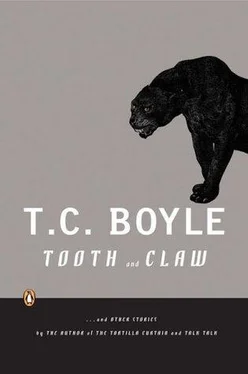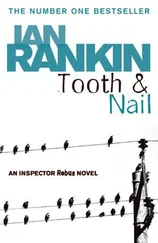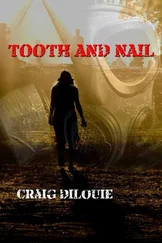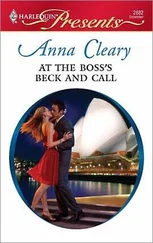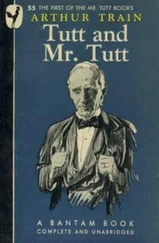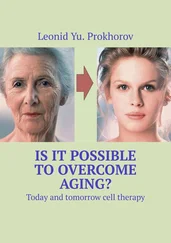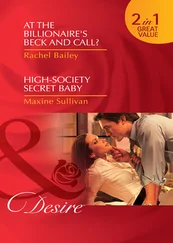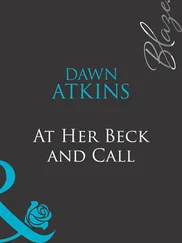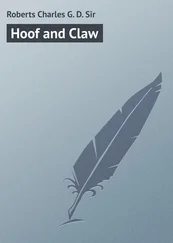I wrote her a check, and within forty-eight hours I was inhabiting a color plate torn out of one of the Jubilation brochures, replete with throw rugs, armoires, sideboards, a set of kitchen chairs designed by a Swedish sadist and a pair of antique brass water pitchers — or were they spittoons? — stuffed with the Concours d’Elegance mix of dried coastal wildflowers. It hadn’t come cheap, but I wasn’t complaining. This was what I’d wanted since the breath had gone out of my marriage and I’d begun living the nomadic life of the motor court, the high-rise hotel and the inn round the corner. I was home. For the first time in as long as I could remember, I felt oriented and secure.
I laid in provisions, rode my Exercycle, got into a couple of books I’d always meant to read ( Crime and Punishment, Judgment at Nuremberg, The Naked and the Dead ), took a divorcée named Cecily to the Chowchy Grill for dinner and afterward to a movie at the art deco palace designed by Cesar Pelli as the centerpiece of the Mercado Street pedestrian mall, and enjoyed the relatively bugless spring weather in a rented kayak out on Lake Allagash. By the end of the second month I’d lost eight pounds, my arms felt firmer and my face was as tan as a tennis pro’s. I wished my wife could see me now, but even as I wished it, the image of her — the heavy, pouting lips and irascible lines etched into the corners of her mouth, the flaring eyes and belligerent stab of her chin — rose up to engulf me in sorrow. Raymond, that was the name of the man she was dating — Raymond, who owned his own restaurant and had a boat out on Long Island Sound.
At any rate, I was standing over the vegetable display at the Jubilation Market one afternoon watching my ex-wife’s face superimpose itself on the gleaming epidermis of an oversized zucchini, when a familiar voice called out my name. It was Vicki. She was wearing a transparent blouse over a bikini top and she’d had her hair done up in a spill of tinted ringlets. A plastic shopping basket dangled from one hand. There were no children in sight. “I heard you got your Casual Contempo,” she said. “How’re you liking it?”
“A dream come true. And you?”
Her smile widened. “I got a job. At the company office? I’m assistant facilitator for tour groups.”
“Tour groups? You mean here? Or over at Contash World?”
“You haven’t noticed all the people in the streets?” she asked, holding her smile. “The ones with the cameras and the straw hats coming down to check us out and see what a model city looks like, works like? Look right there, right out the window there on the sidewalk in front of the Chowchy Grill. See that flock of Hawaiian shirts? And those women with the legs that look like they’ve just been pulled out of the deep freeze?”
I followed her gaze and there they were, tourists, milling around as if on a stage set. How had I failed to notice them? Even now one of them was backing away from the front of the grocery with a movie camera. “Tourists?” I murmured.
She nodded.
Maybe I was a little sour that morning, maybe I needed love and affection, not to mention sex, and maybe I was lonely and frustrated and beginning to feel the first stab of disappointment with my new life, but before I could think, I said, “They’re worse than the ants. Do you have ants, by the way — in your apartment, I mean? The little minuscule ones that make ant freeways all over the floor, the kitchen counter, the walls?”
Her face fell, but then the smile came back, because she was determined to be chirpy and positive. “I wouldn’t say they were worse than the ants — at least the ants clean up after themselves.”
“And cockroaches. Or palmetto bugs — isn’t that what we call them down here? I saw one the size of a frog the other day, right out on Penny Lane.”
She had nothing to say to this, so I changed the subject and asked how her kids were doing.
“Oh, fine. Terrific. They’re thriving.” A pause. “My mother’s down from Philadelphia — she’s babysitting for me until I can find somebody permanent. While I’m at work, that is.”
“Really,” I said, reaching down to shift the offending zucchini to the bottom of the bin. “So are you free right now? For maybe a drink? Unless you have to rush home and cook or something.”
She looked doubtful.
“What I mean is, don’t you want to see what a neo-retro Casual Contempo looks like when it’s fully furnished?”
THE FIRST REAL BUMP in the road came a week or two later. I’d been called away to consult with the transition team at my former company, and when I got back I found a notice in the mailbox from the Contash Corp’s subsidiary, the Jubilation Company, or as we all knew it in short — and somewhat redundantly — the TJC. It seemed they were advising against our spending too much time on our wraparound porches, especially at sunrise and sunset, and to take all precautions while using the jogging trail round Lake Allagash or even window-shopping on Mercado Street. The problem was mosquitoes. Big, outsized Central Floridian mosquitoes that were found to be carrying encephalitis and dengue fever. The TJC was doing all it could vis-à-vis vector control, and they were contractually absolved from any responsibility — just read your Declaration of Covenants, Deeds and Restrictions — but in the interest of public safety they were advising everyone to stay indoors. Despite the heat. And the fact that staying in defeated the whole idea of the Casual Contempo, the wraparound porch and the free interplay between neighbors that lies at the core of what makes a real and actual town click.
I was brooding in the kitchen, idly scratching at the constellation of angry red welts on my right wrist and waiting for the meninges to start swelling in my brainpan, when a movement on the porch caught my eye. Two cloaked figures there, one large, one small, and a cloaked baby carriage. For a moment I didn’t know what to make of it all, but the baby carriage was a dead giveaway: it was Vicki, dressed like a beekeeper, with little Ethan in his own miniature beekeeper’s outfit beside her and baby Ashley imprisoned behind a wall of gauze in the depths of the carriage. “Christ,” I said, ushering them in, “is this what we’re going to have to start wearing now?”
She pulled back the veil to reveal that hopeful smile and the small shining miracle of her hair. “No, I don’t think so,” she said, bending to remove her son’s impedimenta (“I don’t want,” he kept saying, “I don’t want”). “There,” she said, addressing the pale dwindling oval of his face, “there, it’s all right now. And you can have a soda, if Jackson still has any left in the refrigerator—”
“Oh, yeah, sure,” I said, and I was bending too. “Root beer? Or Seven-Up?”
We wound up sitting in the kitchen, drinking white wine and sharing a box of stale Triscuits while the baby slept and Ethan sucked at a can of Hires in front of the tube in the living room. Out back was the low fence that gave onto the nature preserve, with its bird-friendly marsh that also coincidentally happened to serve as a maternity ward for the mosquitoes, and beyond that was Lake Allagash. “At the office they’re saying the mosquitoes are just seasonal,” Vicki said, working a hand up under the tinted ringlets and giving them a shake, “and besides, they’re pretty much spraying around the clock now, so I would think — well, I mean, they’ve had to close down some of the outdoor rides over at Contash World, and that means money lost, big money.”
I wasn’t a cynic, or I tried not to be, because a pioneer can’t afford cynicism. Look on the bright side, that was what I maintained — there was no alternative. “Okay, fine, but have you seen my wrist? I mean, should I be concerned? Should I go to the doctor, do you think?”
Читать дальше
